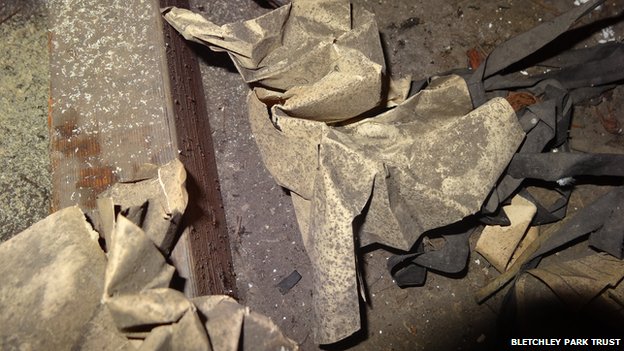Alan Turing, the famous World War Two British Engima code breaker, is said to have had notes and documents stuffed into the wall cavities of Bletchley Park where the codebreakers were based during the war. Bletchley Park, near Milton Keynes in central England, was converted into the British government’s Code and Cypher School during World War Two. The site has a huge mansion for a main headquarters, but during the war many out-buildings were used, and it is in one of these huts that the notes and documents have been found.
The documents concern the method that Alan Turing himself had devised and actually used to decipher his most infamous discovery of the Enigma code. The documents were discovered by accident during routine restoration work around the Park. They feature Banbury sheets, which were used to uncover Nazi coded messages. The sheets had holes punched in them and light was used to show gaps and spacing, the London Evening Standard reports.
It was routine protocol for all documents to be destroyed once used during World War Two, but it seems that whoever was based in Hut Six wadded them up into balls and jammed them into the ceiling and walls, probably to block holes and stop cold drafts from getting into the hut.
Bletchley Park staff say that all of the surviving documents that relate to code-breaking in World War Two are archived at the UK’s security and intelligence organisation GCHQ or at the National Archives, so they are amazed that this new documentation has been uncovered. The Park assures that the paperwork is receiving the best treatment possible, and a conservator has been working on the collection to ensure that the papers are suitably preserved. Many of the documents are handwritten, showing the process of the authors’ problem solving.
In addition to the codebreaking documents, other artefacts from the 1940s were discovered, including a world map, a noticeboard and some magazines. Visitors can tour Bletchley Park since it has now been turned into an educational and historical site in order to preserve the work and memorialise what was accomplished there.
